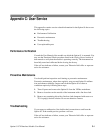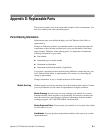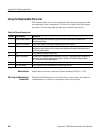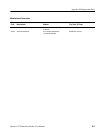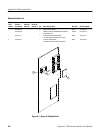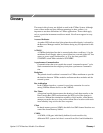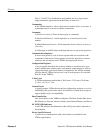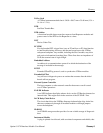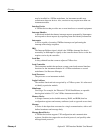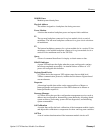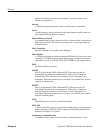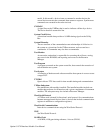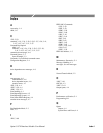
Glossary
Glossary–2
Option 01 VXI Interface Module User Manual
Slots 1–12 on P2. It is distributed to each module slot as a single source,
single destination signal with a matched delay of under 8 ns.
Commander
In the VXIbus interface, a device that controls another device (a servant). A
commander may be a servant of another commander.
Command
A directive to a device. There are three types of commands:
In Word Serial Protocol, a 16-bit imperative to a servant from its com-
mander.
In Shared Memory Protocol, a 16-bit imperative from a client to a server, or
vice versa.
In a Message, an ASCII-coded, multi-byte directive to any receiving device.
Communication Registers
In word serial protocol, a set of device registers that are accessible to the
commander of the device. Such registers are used for inter-device commu-
nications, and are required on all VXIbus message-based devices.
Configuration Registers
A set of registers that allow the system to identify a (module) device type,
model, manufacturer, address space, and memory requirements. In order to
support automatic system and memory configuration, the VXIbus standard
specifies that all VXIbus devices have a set of such registers, all accessible
from P1 on the VMEbus.
C-Size Card
A VXIbus instrument module that is 340.0 mm × 233.4 mm × 30.48 mm
(13.4 in. × 9.2 in × 1.2 in).
Custom Device
A special-purpose VXIbus device that has configuration registers so as to be
identified by the system and to allow for definition of future device types to
support further levels of compatibility.
Data Transfer Bus
One of four buses on the VMEbus backplane. The Data Transfer Bus allows
Bus Masters to direct the transfer of binary data between Masters and Slaves.
DC SUPPLIES Indicator
A red LED indicator that illuminates when a DC power fault is detected on
the backplane.
Device Specific Protocol
A protocol for communication with a device that is not defined in the
VXIbus specification.



